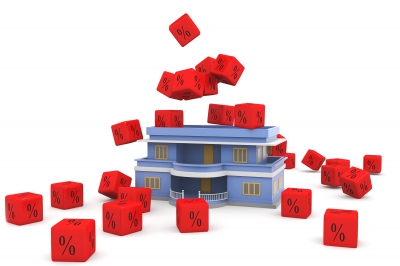 Are you unhappy with your mortgage’s interest rates? Are you having difficulty meeting your mortgage payments? You are not alone. Many homeowners feel this way. Many people are always looking for a better deal. Not surprisingly, refinancing has always been a good option for many homeowners. But while it may seem like a great idea, there are hazards attached to refinancing. This is why you need to carefully consider this option before moving forward with this.
Are you unhappy with your mortgage’s interest rates? Are you having difficulty meeting your mortgage payments? You are not alone. Many homeowners feel this way. Many people are always looking for a better deal. Not surprisingly, refinancing has always been a good option for many homeowners. But while it may seem like a great idea, there are hazards attached to refinancing. This is why you need to carefully consider this option before moving forward with this.
Despite the small number of mortgage options and players in the market, competition is fierce among lenders. Recent data showed that there are many homeowners who are refinancing their home mortgages. Refinancing is a great tool for many homeowners who are finding it hard to meet their mortgage payments. However, there are risks and drawbacks to this, so it is a good idea to know how to go about refinancing your loan properly before you actually do it.
It makes sense to refinance your loan if:
- Your current loan’s rate is not competitive with the prevailing market rate
- There is a significant change in your financial status
- A need arises that require substantial amount of money to meet
- You have knowledge of apparent financial benefits that will arise from refinancing or switching to a different type of interest rate
- You need to consolidate your loans.
It doesn’t make sense to undergo refinancing if:
- You do not intend to keep the property for a long period of time
- Exiting home loans or early termination of home loans means payment of high penalties
- Your previous loans or outstanding debts have taken a hit on your credit history, and you won’t likely get a good rate.
- Your income is uncertain over a period of time.
- Your current loan balance is low.
Before you consider refinancing your loan, it is important to consider various aspects that would influence your ability to pay the loan over the next three years. Refinancing is ideal if your goal is to have a flexible loan, take advantage of lowers rates or pay lower fees due to consolidation of loans. Getting lower rates from refinancing should not solely determine your decision. You have to consider the entirety of your loan and not just its interest. You should consider the impact of refinancing. It is very important that you consider the cost of refinancing and not just its benefits. What is the cost of exiting from existing loan? What are the entry cost, application cost and legal fees?
You also need to consider the terms of the refinanced loan as this will have significant impact on your financial situation in the long run. What kind of interest will you be dealing with? Will you be able to pay for your loans? Is your income secure? Is your source of income stable? Aside from this, you also need to take note of early warning signs that will give you an idea whether refinancing will work out for you or not. If something doesn’t feel right early on, it might be a good idea to look elsewhere.
For instance, a lender who takes a long time to approve your loan or communicate with you may not be the best choice. You should also consider talking to your current lender and see if they are willing to reconstruct your loan. There are lenders who would go to extreme lengths just to keep you from going to a competitor.
Refinancing has its drawbacks, but it is always good to weigh your options from time to time. Over the years, loan terms and products have been greatly improved. Around every three years, you should consider reassessing where you stand with your current obligation, compare your loan with other products, and see if you can benefit from refinancing.





